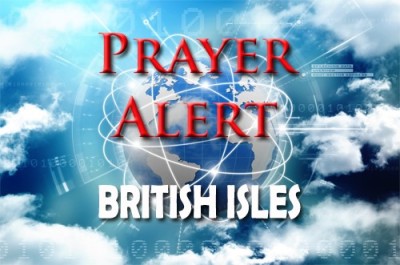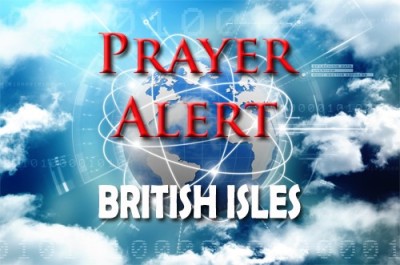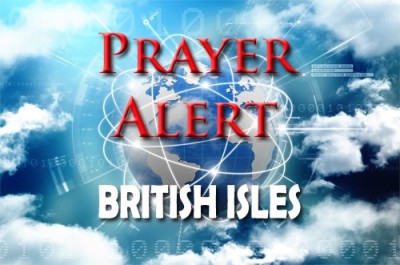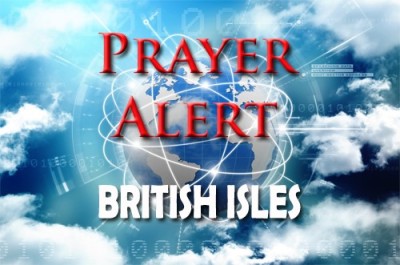Wildfires are tearing through Argentina’s Patagonia region, burning vast areas of native forest and threatening irreplaceable ecosystems. More than 450 square kilometres have already been destroyed, including parts of a national park, a UNESCO World Heritage Site home to ancient alerce trees which can live for thousands of years. Thousands of residents have been evacuated as firefighters battle intense winds, high temperatures and difficult terrain. Fire crews report shortages of trained staff, aircraft and basic equipment, leaving them dangerously overstretched. Environmental groups warn that climate change is worsening fire conditions, making such blazes more frequent and severe. The crisis has intensified criticism of president Javier Milei’s aggressive austerity policies. His ‘chainsaw’ spending cuts this year have slashed the national fire management service’s budget by 71 percent. Milei, who has called climate change a ‘socialist lie’ and is considering withdrawing from the Paris Agreement, faces mounting pressure as the fires have now destroyed an area more than twice the size of Buenos Aires.
Claims of a major shift in global energy politics emerged after Donald Trump announced plans to cut tariffs on Indian exports. Trump said he had agreed a trade deal with Narendra Modi in which India would stop buying Russian oil, a move he argued could help bring an end to the war in Ukraine. India has been one of Russia’s largest customers since 2022, benefiting from discounted prices as Western nations reduced purchases. While Modi welcomed the tariff reductions and spoke positively about peace, he did not publicly confirm any pledge to halt Russian oil imports. India remains heavily dependent on overseas energy and has emphasised diversification rather than abrupt change. It has already started to cut back on buying Russian oil, even though Moscow insists supplies remain uninterrupted. For an insight on India’s shifting relationship with Russia, see
An unexpected move of God took place at RoofCon, a major roofing convention held in Oklahoma City. Though the event was designed to equip professionals with business skills, founder Hunter Ballew sensed the Holy Spirit calling him to use the platform for eternal purposes. Evangelist Clayton King was invited to share a clear and simple Gospel message, emphasising how individuals can truly know they are born again. Attendance at the final session was voluntary, yet many remained. In a spontaneous step of faith, organisers purchased horse troughs and set up baptisms on the convention floor. Over two hundred men and women responded to the Gospel, with dozens immediately baptised. King described the moment as a powerful work of the Holy Spirit, noting a growing hunger for faith beyond church walls. He believes this reflects a wider awakening, as secular promises fail and hearts respond afresh to the transforming power of the Gospel.
Actress and Christian speaker Jen Lilley is calling believers to move beyond a passive faith and rediscover a vibrant, intimate relationship with Jesus. She observes that many people believe in God yet feel spiritually stagnant, settling for routine church attendance rather than a life fully alive in Christ. Lilley believes true renewal comes through deeper commitment, obedience, and freedom found in knowing Jesus personally. Through her podcast and her new devotional book, Wake Up Your Faith: 365 Daily Encounters with Jesus, she invites readers into daily, Spirit-filled encounters that awaken faith and confidence in God’s healing, grace, and faithfulness. Drawing on her own journey from a successful acting career to wholehearted discipleship, Lilley challenges Christians to be bold in prayer and witness. She urges believers to step out in everyday moments, pray for others, and respond to the urgency of the Great Commission. Her message is clear: now is the time to awaken faith, live fully surrendered to Jesus, and actively make disciples.
Sarah Mullally has been formally confirmed as the 106th Archbishop of Canterbury during a service at St Paul’s Cathedral. This was the legal moment when the responsibilities of the office were vested in her, ahead of her installation in Canterbury and the start of her public ministry. Presided over by Stephen Cottrell, the ceremony brought together bishops, clergy, laity, schoolchildren and representatives from across the Church of England and the global Anglican Communion. Archbishop Sarah took the oath of allegiance and made the declaration of assent, before receiving words of encouragement known as 'The Charge'. Archbishop Stephen urged her to 'be yourself', affirming that God has called her with her own gifts, experiences and perspective to serve Christ and build the Church. The service reflected the Church’s diversity and concluded with Archbishop Sarah’s first blessing, as prayers were offered for discernment, unity and faithfulness in her leadership. See
UK and China sign agreements in landmark visit
29 Jan 2026Keir Starmer has concluded a landmark bilateral meeting with Chinese president Xi Jinping in Beijing, marking the first visit by a British prime minister to China in eight years. The talks, held at the Great Hall of the People, signal a renewed phase of engagement between the UK and China at a time of global economic fragility and geopolitical tension. Starmer described China as a vital global player and spoke of the need for a more mature and sophisticated relationship, while President Xi emphasised long-term partnership and the importance of rising above differences. Discussions covered trade, services, education, healthcare, artificial intelligence, climate change and irregular migration. A series of cooperation agreements were signed, including progress towards visa-free travel for short-term UK visitors and a feasibility study on trade in services. While human rights concerns remain sensitive, the Government argues that constructive engagement, rather than isolation, offers the best route to economic growth, international stability and influence on the global stage.
The Royal Navy has closely monitored a Russian cargo vessel after it spent around fourteen hours stationary above sensitive undersea data cables in the Bristol Channel, just two miles from Minehead. The ship, Sinegorsk, arrived late at night and anchored near multiple telecommunications cables linking the UK with the USA, Canada, Spain,. and Portugal. The vessel’s last recorded port was Arkhangelsk, a key base for the Russian Navy’s northern fleet. Surveillance aircraft and a helicopter were deployed, after which the ship departed westwards. While MoD sources suggested the stop may have been due to poor weather, politicians and security experts described the behaviour as suspicious, given previous incidents involving Russian interference with undersea infrastructure. The episode has renewed concerns over the vulnerability of critical national communications and the ongoing security challenges facing the UK amid heightened geopolitical tensions.
Fresh divisions have emerged within the Labour party after the decision to block Andy Burnham from standing in a parliamentary by-election in Greater Manchester. The move, approved by Labour’s National Executive Committee, has triggered a strong backlash from MPs, party activists and trade unions. Unison general secretary Andrea Egan warned Keir Starmer that the party risked damaging itself through excessive central control and intolerance of internal dissent. Writing publicly, she accused the leadership of factionalism and called for a radical change in direction to prevent further electoral losses. More than fifty Labour MPs from across the party have expressed concern, with local activists also demanding the decision be reversed. Critics argue the move undermines democratic accountability and weakens Labour’s position in a once-safe seat now vulnerable to Reform UK and the Greens. Breaking news: Andy Burnham has said he will accept the Labour decision even though it was hard to take. See







